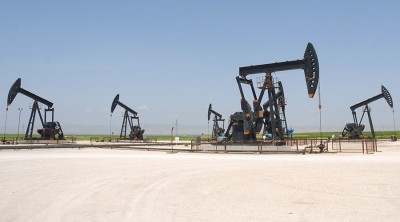US Forces Destroy Syrian Oil While Enforcing Sanctions
Domestic oil tankers attacked resulting in casualties

The U.S. military attacked three Syrian oil tankers, destroying all and killing four of their drivers. The tankers were carrying Syrian oil, pumped from Syrian oil wells, and driving on Syrian territory. The U.S. justified the attack and murders while enforcing the U.S. sanctions against Syria, which prohibit the purchase or importation of any oil. The oil was pumped from Syrian oil wells under the occupation of the U.S. ally in Syria and then sold to the Syrian government, for the needs of the civilians in the regions under Syrian control.
The far North East corner of Syria has been under occupation by the Syrian Democratic Forces (SDF), and made up of Syrian Kurds who turned against their own country, and are working as mercenaries of the U. S. military. The region they are occupying by military force while subjugating the civilians who are forced to live under their rule is the location of major Syrian oil wells, which had provided the domestic needs of Syria for decades. The fighters are ethnically Kurds, which is a minority in Syria. The area they occupy is not predominantly Kurdish, as the majority of the population is Syrian Arabs and Syrian Christians. In an effort to establish a homeland on land which does not belong to them, they put their trust in America, who promised that if they fought ISIS in Reqaa, then the U.S. would support their establishing a Kurdistan in Syria, and breaking up Syria, which was a strategic goal for the U.S.: divide and conquer.
The Syrian civilians are living under an international economic siege, which is causing the suffering of unarmed civilians who are trying to survive, with hopes of recovery. The war is over, but economic recovery cannot begin due to the sanctions imposed by the richest western nations on the survivors of eight years of conflict which has killed up to 500,000 and has displaced millions. “I thought if we resisted the terrorists, we would be rewarded with improved conditions, but it looks like defeating the terrorists has caused America and Europe to punish us,” said an Aleppo shopkeeper.
Syria was attacked in March 2011 by an international plan headed up by the U.S. and NATO, and most of the western world signed on to the project to remove a constitutionally elected president from office and institute a Muslim Brotherhood government in Damascus, replacing the secular one.
The U.S. and EU have placed sanctions on Syria for many years, and are increasing the pressure on the civilian population who has suffered eight years of foreign-funded attacks. Many civilians left the country as migrants to other places, in search of an income and a future free of living under sanctions. Chemotherapy drugs used to be free at all Syrian national hospitals; but, because of the U.S. and EU sanctions, the Syrian government, and private businessmen are prohibited from importing medicines and products made abroad. The Syrian drug lab producing chemotherapy drugs for domestic use was destroyed by U. S. cruise missiles in April 2018.
“Since the Syria crisis broke out, the country has been short of all kinds of medicines due to the sanctions from Western countries. Foreign companies stopped exporting high-quality medicines to Syria, especially anti-cancer medicines. So we have been conducting researches on anti-cancer medicines here, and three cancer drugs have been developed,” said the head of the research center destroyed by the U.S. in Damascus.
Electricity in Syria is generated by burning petroleum fuel. One of the power plants is near Mhardeh, a Christian town of 35,000 which is North of Hama, and South of Idlib. The terrorists who control Idlib are Radical Islamic terrorists affiliated with Al Qaeda. They have attacked Mhardeh and the power plants repeatedly over eight years. Earlier, about fifty terrorists dressed up with Syrian Arab Army uniforms and attempted to enter into Mhardeh for the purpose of a massacre; however, at the last moment their plan was discovered and they were stopped and captured alive. The terrorists have used missiles to attack the power generating plant there many times. Typically, the area of Idlib, Hama, Homs, and Latakia would plunge into darkness, and later the attack would be confirmed in the news. Syria has a severe shortage of electricity, and the new normal is electricity cut-offs for hours on rotating schedules.
Several months ago, there were long lines at gasoline stations, as there was a severe gasoline shortage. This was caused by sanctions, as the various oil tankers cruising toward Syrian with their cargo to be refined in Banias were blocked at the Suez Canal in Egypt, and also blocked in the Mediterranean Sea by the U.S. warships. Several months passed in which people were walking, or sleeping in the cars while holding their place in a long line.
*
Note to readers: please click the share buttons above or below. Forward this article to your email lists. Crosspost on your blog site, internet forums. etc.
This article was originally published on InfoRos.
Order Mark Taliano’s Book “Voices from Syria” directly from Global Research.
Mark Taliano combines years of research with on-the-ground observations to present an informed and well-documented analysis that refutes the mainstream media narratives on Syria.
 Voices from Syria
Voices from Syria
ISBN: 978-0-9879389-1-6
Author: Mark Taliano
Year: 2017
Pages: 128 (Expanded edition: 1 new chapter)
List Price: $17.95
Special Price: $9.95

